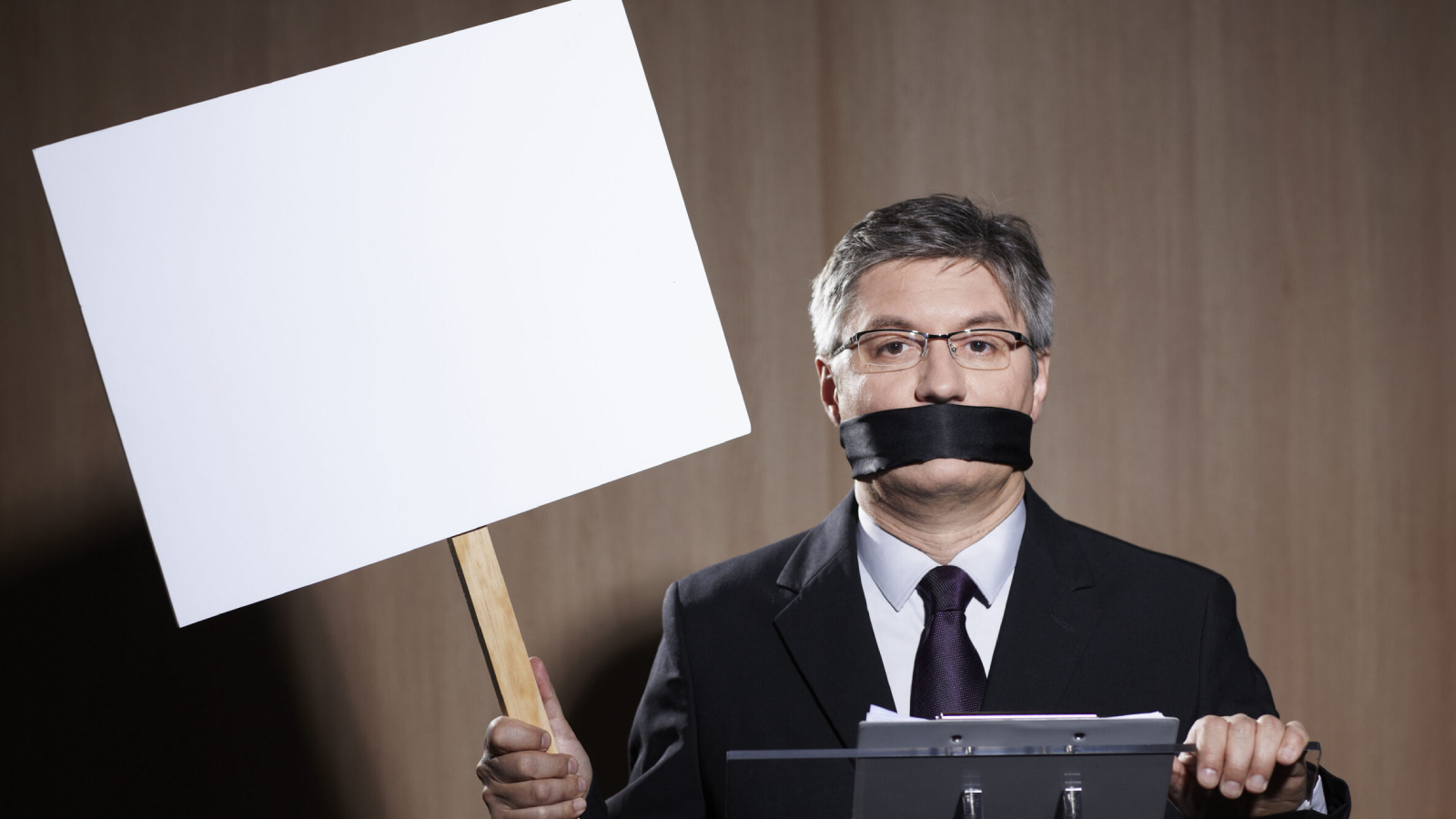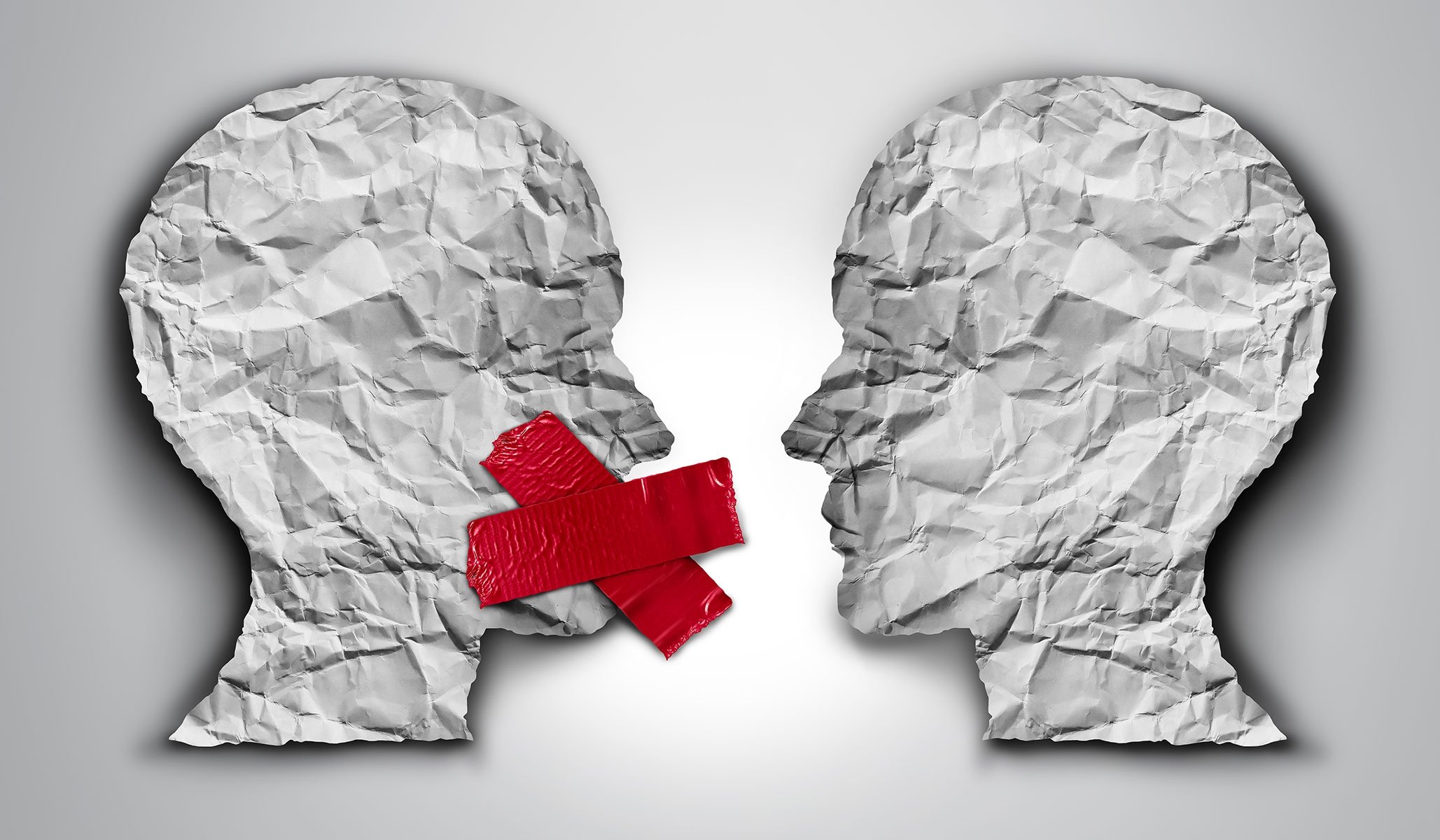Don't Be Afraid of Cancel Culture Anymore

"It was only when I thought I was out of the system that I was reintroduced," says Michael Corleone.
Why would someone quote a line from "The Godfather" Part III? Although it is considered one of the worst films of that wonderful series, the quote is associated for some reason with the phrase “cancel culture”, and the phenomenon of “cancel culture” has been the most prominent over the past few years. All our favorite public figures seem to be so forgotten that the name of the phenomenon has even been added to the "words to watch" list of Merriam-Webster.
But what exactly does it mean to "cancel someone?", and how does that fit Michael Corleone?
According to Dictionary.com: “Cancel culture refers to the popular practice of withdrawing support, canceling, or reporting on public figures and companies after they have done or said something that is not considered offensive or unacceptable. These unacceptable statements on social media are disgraceful and detrimental to the support group."
Professor Meredith Clark in the Department of Media Studies at the University of Virginia wrote in The New York Times in 2018: “Cancel culture is an expression of will; It can be thought of as one's downfall and then obtaining one's power back."
Professor Lisa Nakamura added: “Cancel culture is like a cultural boycott, as it is a consensus of supporters not to glorify the public figure, and people liken it to the attention economy, when someone is denied attention by an entity (such as a sponsor), they are deprived of their livelihood.”
A Brief History of “Cancel Culture”:
The exact origin of the term is not known, and as Merriam-Webster notes: “The idea has taken hold in recent years due to conversations sparked by MeToo and other movements calling for greater accountability of senior public figures, and the term has been attributed to Twitter users who are black people, the majority of its users are gathered in groups of black people. Anyone can join these groups, as it was used as a hashtag.
Aja Romano stated in a research article published in 2018 for Vox that “the cancel culture arose within black culture, and it emerged within the empowerment movements for black people. Cancel culture was also influenced by the criticism of online public figures in the early 2010s, using blogs such as “Your Fave is Problematic.”
Opinions differ on whether the term is new or not, but regardless, the concept of cancel culture is relatively new, and with public figures still getting cancelled, or reporting from sponsoring companies until now, the idea of canceling someone has become a controversial topic, and this concept has emerged after the 2020 presidential election and the events of January 6, 2021.
After these two events, the danger of this concept increased exponentially, and politicians said that this is the most dangerous thing today. Many publications questioned whether cancel culture had deeply affected society, and also declared that it had become disturbingly absurd.
Many opinion articles discuss this topic, and the American rapper "Ice Cube" recently released a song attacking cancel culture, even neurosurgeons have intervened to talk about this matter. Here, the movie “The Godfather” is related to cancel culture in reality. Before the events of 2020, cancel culture was limited to the elite, but now, the issue touches every single one of us.
Steps to avoid cancel culture:
Regardless of the different points of view, there is one way to prevent it, and that is to avoid cancellation culture in the first place by doing the following:
1. Believing that cancel culture isn't real, but words have consequences:
Put aside the exaggeration you see on television in terms of glorifying the personalities who won the Oscar, it is not possible to cancel the presence of a person literally, so you must know that every word has consequences, and there must be a violent reaction to any statement or action that may cause a problem for one of the parties. This could mean boycotting the business, removing it from Twitter, or just getting people to post offensive things online about it, and there will be repercussions, of course, but most people won't actually get canceled, and life will go on, for example:
- Louis C.K is back in improvisation.
- Kevin Hart has released several stand-up specials, and several films are still in post-production.
- Woody Allen directed a collaboration with the cast of 2019's A Rainy Day in New York.
- Kanye West continued to record music.
- JK Rowling's books are still being published.
- Bari Weiss presents her own newsletter.
- Ellen De Generes continues to host her famous talk show.
- Josh Hawley continues to serve in the US Senate, is unblocked on Twitter, and is a frequent guest on Fox News.
- Mike Lindell is CEO of MyPillow and is a frequent guest on Newsmax.

Some examples of cancel culture can be thought of, after the US (Capitol) incident and the trial that followed it, as you will find many people who have experienced some setbacks and harassment, but they are not eliminated from existence, and for the most part, they still have a profession and a platform of sorts to express their opinions.
What about the average person?
Ordinary people (with limited influence) often make many mistakes, both intentional and unintentional, which are more or less ignored; As they will not be punished just because they committed a violation for the first time. For example: someone may have made an insulting comment by mistake while talking to a co-worker, and they will be informed the first time that it is inappropriate to say, so that they learn and correct their behavior with experience, but if they continue to use this offensive word, this indicates their lack of interest, and then they will be punished.
A person can also be punished in the event that they clearly violated the law. If you practice illegal work such as making threats or false allegations, do not be surprised when you get into trouble with representatives of the law or the employer, clients, etc. Although most of these cases are exaggerated extreme cases, most of us won't get "cancelled," And frankly, if we do, it will likely be for a good reason that merits the penalty of cancellation.
2. Think carefully before you speak:
One of the most prominent stories spread recently in this context is the story of Morgan Wallen and his sister. Wallen was subjected to a sharp attack from the media and the audience on social media, due to some racist words he said through a short clip, which was not intended, forcing his sister to defend him, and gain sympathy and apology from the audience.
Hence, we learn not to throw thoughtless words randomly, and to try to justify and fix mistakes when they happen. This applies to any racist, anti-Semitic or Islamophobic topic, and in this case others cannot be blamed; it is about self-accountability and knowing what offends others and moving away from it. When the offense is intentional, you must bear the consequences of your actions.
Unless your business brand is racist or provocative, just keep yourself out of the loop. As the American self-help author Napoleon Hill puts it: “Think twice before you speak, because the impact of your words will sow the seeds of success or failure in someone else's mind.” The same goes for social media.
As a general rule, do not share content that contains profanity, gossip, or illegal activities, and definitely stay away from social media if you are unconscious and don't know what you are posting. Additionally, be careful not to think too much about social or political issues. This is because it pushes you to give your opinion about them. So be mindful of your sense of humor when you comment on a general issue; in short, always think before you share.
3. Do not share sensitive content:
You must be cautious when posting because posts on the Internet do not disappear completely. Let's assume that a tweet was posted about personal matters. If you regret posting it, you can simply delete it. For many people, deleting a post is enough to erase the past, but it depends on the speed of action. Leaving the tweet for a longer period of time will give others more time to see what has been shared and respond to it. Even if the situation was handled swiftly, it is important to keep in mind that publications can be preserved through screenshots or phishing of particular content taken from prior conversations. This embarrassing situation can be avoided by not disclosing any private information or opinions that would later come back to haunt you.

4. Read the exact terms of use details:
You must read all the fine details and terms of the usage policy. This is because you may not agree to some of the site's terms and privacy policies, and if you violate these terms, you may receive a temporary suspension of your account or a partial or permanent ban. Fortunately, you can read the site's policy and terms of use and know everything before pressing the agree button.
5. Reduce Screen Time:
The easiest way to protect yourself from cancel culture is to reduce screen time. It is not required to completely eliminate social media, as it is useful in building and expanding the reach of the brand and maintaining communication with others, but there is no reason to spend 145 minutes a day using social media unless it is your job.
It is clear that the less time you spend on social media, the fewer opportunities there are for getting into trouble. Instead of being busy sharing every moment and giving your opinion on every topic, you can engage in another activity, such as taking a walk without the phone, pursuing a hobby, reading and writing, and strengthening social relationships in the real world.
If the presence of social media applications is too tempting to browse them, the applications can be deleted from the phone, or at least they can be removed from the home screen. It is also possible to use tools that prevent the use of applications at certain times, or to return to using the old phone without the Internet. Another idea that may help reduce screen time is to create technology-free zones. Where it is possible to make some rooms in the house where you can’t use the phone, such as the work desk, the bedroom, and the dining room table, the phone remains away from the user in another room.
But what about FOMO (fear of missing out)? You can make the most of grouping important events for a specific time, and thus you can limit the use of social media to two or three times a day. Social media management applications can also be used, which allow scheduling and monitoring of social channels, and for business owners, some autoresponder bots can handle customer service inquiries.
What if others try to cancel you?
In fact, every action has a reaction. So you will not be punished, interrupted, or terminated without reason, and if this happens, it is possible that there is a misunderstanding or perhaps because you deserve it. When you make a racist comment in public or on social media, you should not be surprised to pay the price for it, but when confusion occurs, the other side can be heard. It is a good opportunity to show greater empathy for others and to mature through those experiences on a personal level.
On the other hand, an angry customer may attack you or a former government employee may harm you, and here the matter must be viewed impartially. If they are right, negative feedback should be used to identify weaknesses, build trust, etc., and in some cases, it is better to ignore these individuals and move on. If it gets really bad, they can be reported or legal action can be taken against them. As a team leader, you should check your social media policy and remind your team of online etiquette to avoid reporting or getting cancelled.
In conclusion:
You should know that there is no need to feel sleepless and spend your nights thinking about cancel culture; just use common sense, do not say bad or hateful words, and perhaps it is best to limit the use of social media.
